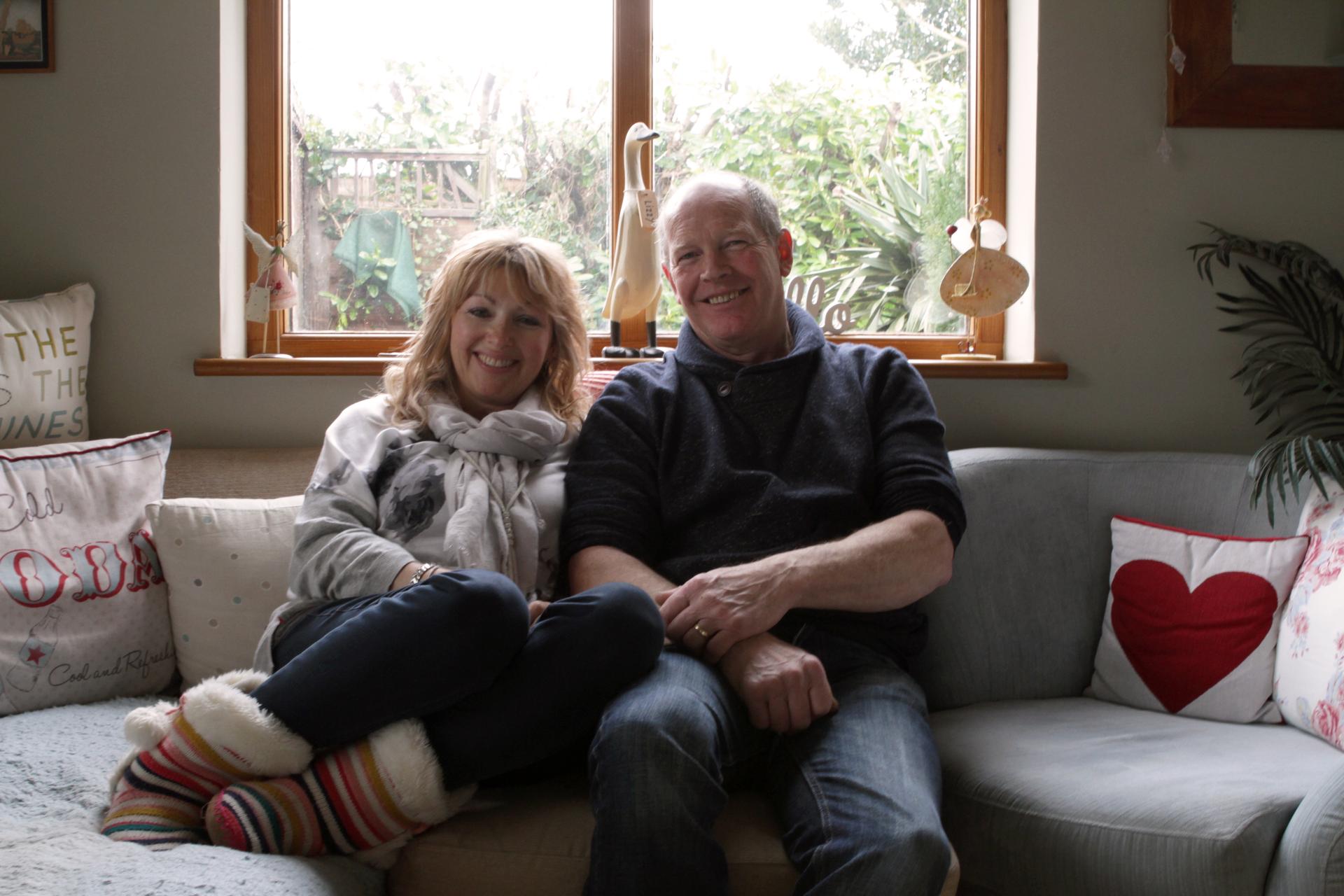For one British couple, there’s an unexpected upside to living near a crumbling coast
Lizzy and Teddy Cane in their home in Happisburgh, England, in March 2018.
Around the world, countless communities are already feeling the impacts of coastal erosion and rising seas. And it’s likely to get worse.
Sea levels, which have risen globally an average of 3 millimeters a year over the past 25 years, are projected to rise faster as the planet warms.
One of the communities feeling the impact is the village of Happisburgh, on the eastern coast of England, where the soft clay and sand cliffs are slowly crumbling into the North Sea.
Related: As a British village crumbles into the sea, a family holds onto a home that can't be saved
Dozens of homes have been lost to the erosion there over the past few decades, and more are expected to be demolished before crumbling into the sea by century’s end.
It’s one of the communities that the British government has decided not to protect with expensive new sea defenses as it plans how best to defend the country’s coastline in the face of worse flooding and increasingly stormy seas.
Some local families are preparing to say goodbye to their homes within a generation.
But for another, the erosion has an unexpected silver lining.
A couple, a mid-life crisis, and a move around the world
The spark of an idea came to Happisburgh resident Teddy Cane about 15 years ago, when he was in his early 40s: He wanted to move with his wife and three kids to Australia.
“How do you know where you are is the best you can achieve, or the best for your family?” he says he thought at the time. “There’s always something else that maybe you have to find or go and search for.”
His wife Lizzy attributed his urge to relocate to a mid-life crisis.
“We had no friends [in Australia], no family. We’d never been,” Lizzy says.
But Lizzy was on board. Teddy’s experience as a carpenter helped them get visas, and the couple and two of their three kids prepared to move.
They put their carefully decorated house in Happisburgh up for sale, but it just sat there for a year and a half. The housing market was bad at the time, but Lizzy says homes in neighboring villages were still selling while those in Happisburgh were not. She believes fears over coastal erosion were a big reason why.
“You couldn’t sell a house in Happisburgh at the time because of the negative press coverage about the erosion,” Lizzy Cane says. “So we rented the house out, packed a suitcase, and we went.”
Coming home again
The Cane’s settled in Adelaide, Australia about six years ago, enrolled their daughter in school and found work.
“Our life out there was nice, we were having a nice time,” Lizzy says, “but then we realized it wasn’t any better.”
They missed friends and family, and Teddy eventually missed working on his own house. So about three years after moving to Australia, they moved back to Happisburgh.
“We’re actually glad we didn’t sell our house, because had we sold it, we wouldn’t have been able to afford to buy it back,” Lizzy says. “That’s the silver lining.”
Coastal erosion is expected to put nearly 3,000 homes and businesses at risk in England alone in the next 50 years.
But the Canes think it had the opposite effect for them. It helped save their home — for their use at least.
“Coming back here, it really dawned on me.” Teddy says. “It’s just a lovely, idyllic little place to be.”
The Canes live far enough inland that they expect their house to long outlast them, and they say they’re back in the village of Happisburgh for good.
“A man travels the world over in search of what he needs,” says a sign sitting near their TV that Lizzy put up after they got back from Australia, “and returns home to find it.”
Our coverage reaches millions each week, but only a small fraction of listeners contribute to sustain our program. We still need 224 more people to donate $100 or $10/monthly to unlock our $67,000 match. Will you help us get there today?
